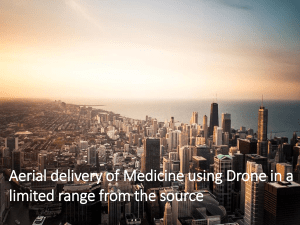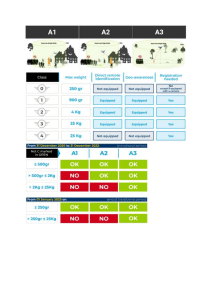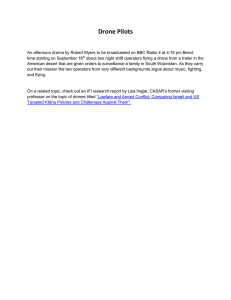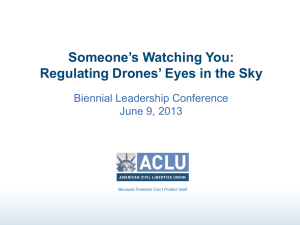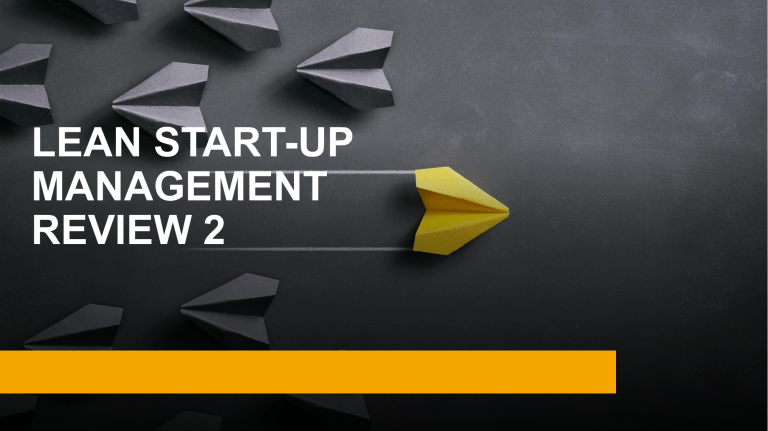
LEAN START-UP MANAGEMENT REVIEW 2 COLLABORATING WITH KIRANA STORES • Kirana stores in India are overwhelmingly looking at adoption of technology to stay relevant amid business uncertainty due to coronavirus outbreak. Nearly 40 per cent of shops are looking at partnering with online delivery and supply platforms, says the latest EY 'Sentiments of India' survey. • We wish to collaborate with them so that we can mutually grow in this field and both can gain something from this , they will help us to provide easy and faster deliveries in their neighborhood . • We will try to start out with one State and will divide it into various regions and parts Packaging Details • Our Objective is to make our customers get the product they want safely so packaging Is an important factor while doing it by a drone. • By using the drone the risk of items getting lopsided may increase Or damage to any fragile item. • So the points that we have to keep in mind are that decrease the volume so that it doesn’t have any volume to move…This can be achieved by using SHORT BOXES and Thermocol fitted in them which does not allows free movement during the delivery. • And for Some other products we can use Bubble wrap…. And other basic packaging techniques Extra Layer Of Protection • In case of bad weather the whole parcel will be bubble wrapped from outside • What are the implications for packaging if a parcel is to be dropped into your back garden by drone rather than handed to you by a postman? Perhaps the plastic box will replace the cardboard box as the favored packaging for delivered parcels. Plastic is a durable and waterproof material that will offer some protection (from impact and from rainwater) for the box’s contents NAVIGATION • Drones using GPS (differential or otherwise) have no trouble navigating around open areas or landing in fields. We're probably dealing with an accuracy of somewhere between 3 and 10 meters, which is fine for most applications. But it's not fine for landing on the front steps of a house as shown in the video, especially when there are obstacles (like trees) all over the place. Furthermore, how does the drone know where to go? You can't just give it an address; it needs precise GPS coordinates. Aerial maps usually aren't updated frequently enough to show obstacles, and if you leave it in the hands of the consumer (through, say, a GPS-enabled app), you're going to get a bunch of people giving your drone the coordinates of their homes with 50 meters of error. Avoiding The Air Traffic • Even if you get all of the navigation bugs worked out, the only way it's going to make sense to make deliveries like this is if you're in a high-density urban area. That implies lots of buildings and power lines and telephone poles and pigeons and trees and stuff all over the place, and your drone is going to have to safely avoid all of them by itself. This is certainly possible, but doing it dynamically (in real-time on board the drone) is going to require a lot of computing power and some relatively sophisticated sensors, like (at a bare minimum) a camera that's highresolution enough to pick out black power lines against black pavement. And then once the drone gets to where it's going, it's going to have to locate a safe place to land and drop off its box, which brings us to safety issues. Other Interested Corporations • Companies that offer to bring something to your door have to factor in the cost of delivery. This means paying a driver to deliver your pizza or your package. Automating the delivery process appeals to these companies as a possible money-saving measure. Various postal companies and an enterprising Domino's franchise have all conducted drone delivery trials • B.Kartik (19BEC1252) • Madhavan.M (19BEC1423) • Aarushi Dhaka (19BEC1198) Submitted By • Trish D’cruz (19BEC1200) • Aryan Mehta (19BEC1101) • Shaik Fardeen (19BLC1079)
